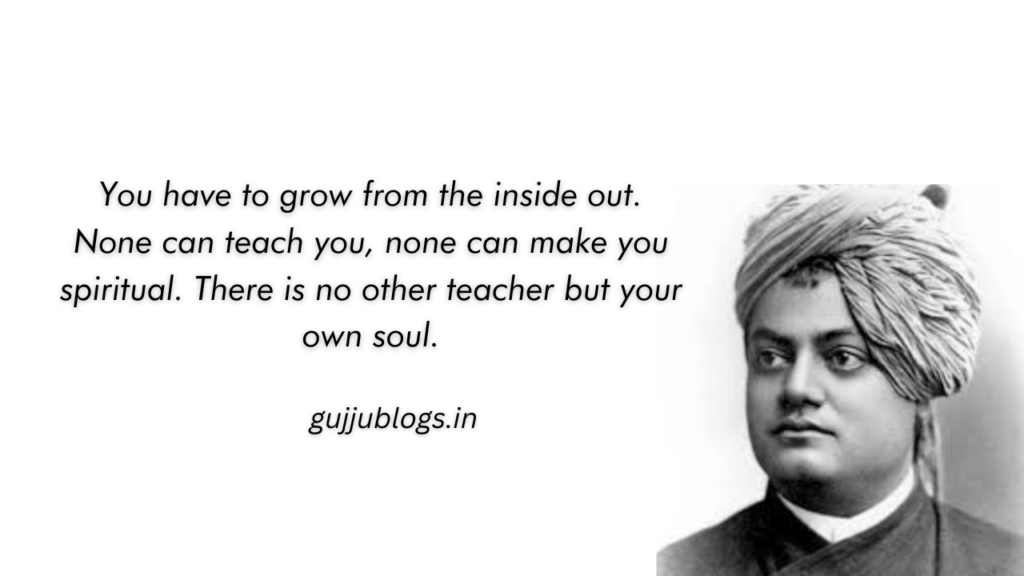Swami Vivekananda, born as Narendranath Datta in Kolkata, India in 1863, was a prominent Indian Hindu monk and a key figure in the introduction of Indian philosophies to the Western world. His teachings and ideals continue to inspire millions of people worldwide, transcending time and borders. Let’s delve into the life and legacy of Swami Vivekananda and how his profound wisdom and spiritual insights have left an indelible mark on humanity.
Early Life and Spiritual Journey
At a young age, Narendranath displayed exceptional intelligence and a deep yearning for spiritual knowledge. After encountering the revered saint Ramakrishna Paramahansa, his life took a transformative turn. He became a disciple of Ramakrishna and imbibed his teachings, which focused on the convergence of different religious beliefs and the universality of divinity.

- Date of Birth: January12, 1863
- Place of Birth: Calcutta, Bengal Presidency (Now Kolkata in West Bengal)
- Parents: Vishwanath Dutta (Father) and Bhuvaneshwari Devi (Mother)
- Education: Calcutta Metropolitan School; Presidency College, Calcutta
- Institutions: Ramakrishna Math; Ramakrishna Mission; Vedanta Society of New York
- Religious Views: Hinduism
- Philosophy: Advaita Vedanta
- Publications: Karma Yoga (1896); Raja Yoga (1896); Lectures from Colombo to Almora (1897); My Master (1901)
- Death: July 4, 1902
- Place of Death: Belur Math, Belur, Bengal
- Memorial: Belur Math, Belur, West Bengal
Life like a Monk
In the middle of 1885, Ramakrishna, who was suffering from throat cancer, became seriously ill. In September 1885, he was relocated to Shyampukur in Calcutta for better medical treatment. To ensure his comfort, Swami Vivekananda, also known as Narendranath, rented a villa in Cossipore. Along with a group of young individuals who were devoted followers of Ramakrishna, they took care of their beloved Guru with unwavering dedication. Unfortunately, Sri Ramakrishna passed away on 16 August 1886, leaving his disciples filled with sorrow.
Following their Guru’s demise, approximately fifteen disciples, including Narendranath, decided to live together in a run-down building in Baranagar, North Calcutta. This building was given the name Ramakrishna Math, and it marked the establishment of the monastic order of Ramakrishna. In 1887, they officially renounced worldly possessions and embraced the vows of monkhood. Narendranath, now known as Vivekananda, emerged as a symbol of profound wisdom, as demonstrated by his chosen name.
Relying solely on alms obtained through holy begging or ‘madhukari,’ the brotherhood devoted themselves to intense yoga and meditation practices. In 1886, Vivekananda embarked on a remarkable journey throughout India as a wandering ascetic, or ‘Parivrajak.’ He traveled across the entire country, immersing himself in the social, cultural, and religious aspects of the people he encountered. After witnessing the hardships faced by the common people, he made a solemn commitment to dedicate his life to easing their suffering, vowing to bring comfort and relief to those in need.
Impact of Swami Vivekananda’s Teachings
Spreading the Message of Unity and Universal Brotherhood
Swami Vivekananda’s message was clear and powerful – to embrace unity amidst diversity and foster universal brotherhood. He firmly believed that all religions lead to the same truth and that sectarianism should be replaced with a spirit of acceptance and understanding. His famous speech at the World’s Parliament of Religions in 1893 in Chicago reiterated this message and captivated the audience, earning him global recognition.
Inspiring Youth and Encouraging Self-Empowerment
Swami Vivekananda recognized the potential and power of the youth in shaping the future. He emphasized the importance of education, character building, and self-reliance. His teachings encouraged individuals to overcome their limitations, believe in their capabilities, and work towards their goals with dedication and perseverance. Swami Vivekananda’s words continue to resonate with the youth, motivating them to tap into their inner potential and contribute positively to society.
Practical Spirituality: Balancing Material and Spiritual Pursuits
Swami Vivekananda emphasized the idea of practical spirituality, where one could strive for material success while maintaining a strong spiritual foundation. He advocated for a holistic approach to life, where worldly achievements were not seen as conflicting with spiritual growth. According to him, true success lies in harmonizing material and spiritual pursuits, leading to a balanced and fulfilling existence.
Impact on Education and Social Reform
Swami Vivekananda foresaw the importance of education in liberating individuals and societies from ignorance and poverty. He believed that education should not only focus on academic knowledge but also on moral and ethical development. With this vision, he established the Ramakrishna Mission and the Ramakrishna Math, institutions that not only provided education but also worked towards social reform, empowering the underprivileged and marginalized sections of society.
Conclusion
Swami Vivekananda, with his profound wisdom, spiritual insights, and dedication to humanity, has left an enduring impact on the world. His teachings of unity, universal brotherhood, and self-empowerment continue to guide generations towards a more enlightened and compassionate existence. Let us embrace the ideals of Swami Vivekananda and strive to create a world that reflects his vision of harmony, understanding, and respect for all.
